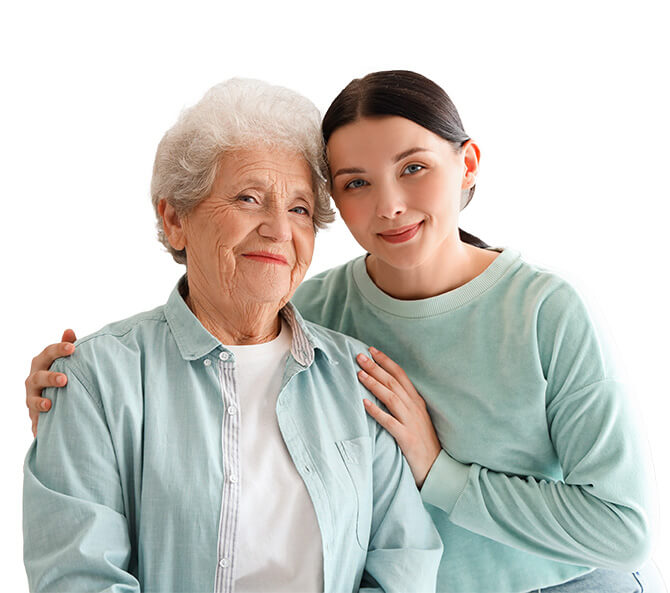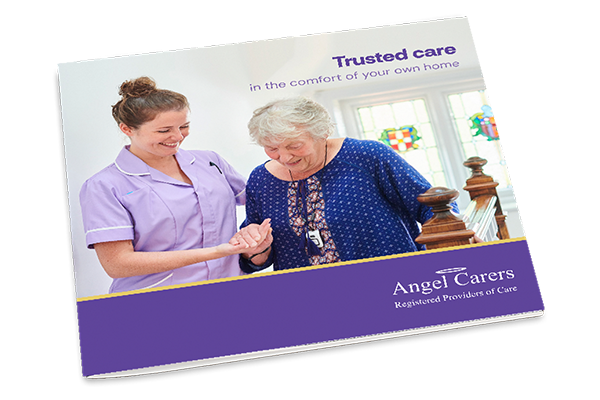Safety Measures for the Elderly Living at Home

Why Home Safety Matters for the Elderly
At Angel Carers, we believe everyone has the right to feel safe, supported and comfortable at home, whether they’re receiving care or not.
Falls at home are a significant risk for older people and are often underestimated. According to the NHS, ‘around a third of people aged 65 and over, and around half of people aged 80 and over, fall at least once a year’. These figures rise even further during the colder months.
As temperatures drop, slips, trips, and falls become more common due to wet surfaces, icy paths, and reduced mobility. A fall that a younger person might easily recover from can have serious physical and emotional effects on an older adult. However, with awareness and the proper support, your loved one can remain safe, independent, and confident at home throughout the year.
Below, we explore practical home safety measures and how Angel Carers helps support vulnerable clients with peace of mind.
1. Conduct a Home Safety Assessment
A thorough home safety assessment helps identify potential hazards before they become problems. Look for:
- Tripping risks such as loose rugs, uneven flooring, or clutter
- Adequate lighting in hallways, staircases, and bathrooms
- Accessibility issues like narrow doorways, beds at awkward heights, or a lack of grab bars
If your loved one finds it difficult to sit or stand, we can arrange an Occupational Therapist assessment for aids such as bed or chair raisers. Documenting these risks and addressing them early is essential for creating a safe environment and reducing the risk of injury.
2. Develop a Personalised Care Plan
Every person’s needs are unique – and their care should be too. Angel Carers develops individualised care plans that promote safety and independence while supporting personal preferences.
These plans may include:
- Medication management with pill organisers or blister packs
- Mobility assistance and safe movement routines
- Dietary and hydration support tailored to health needs
- Regular reviews to adjust care as needs evolve
Ongoing communication with clients and families ensures every care plan remains effective and up to date.
3. Fall Prevention Strategies
Falls are one of the most common causes of injury among vulnerable individuals. Preventive steps include:
- Installing grab rails near steps, showers, and toilets
- Using non-slip mats in wet areas
- Wearing supportive, non-slip footwear
- Keeping walking aids within easy reach and in good condition
4. Emergency Preparedness
Clients should always feel confident that help is available when needed. Simple measures include:
- Emergency response systems, such as pendants or wristbands
- Clearly displayed emergency contacts in visible areas
- A medical information folder containing health history, allergies, and current medications
5. Fire and Carbon Monoxide Safety
Fire and carbon monoxide safety are vital for those living independently:
- Install smoke and carbon monoxide alarms on every level of the home
- Test and replace batteries regularly
- Use heaters and appliances safely, and never overload sockets
- Keep a simple escape plan visible and easy to follow
6. Nutrition and Hydration Safety
Good nutrition and hydration play a key role in maintaining health and preventing illness. Encourage:
- Regular, balanced meals or nutritious meal delivery services
- Keeping drinks easily accessible in frequently used rooms
- Checking food freshness and expiration dates regularly
7. Social and Emotional Safety
Isolation can lead to anxiety, depression, or neglect. Supporting emotional well-being is just as important as physical safety:
- Arrange regular check-ins via phone, visits, or community volunteers
- Encourage social or community involvement
- Provide access to mental health support when needed
How Families Can Help
Small changes can make a big difference to safety at home:
- Keep walkways clear and clutter-free
- Check that furniture, rugs, wires, and carpets are stable and flush
- Use non-slip mats and install grab rails in key areas like bathrooms and stairways
- Improve lighting, especially between the bedroom and bathroom
- Use alarm systems, motion sensors, or night lights for added safety
- Help plan meals rich in calcium and vitamin D to support bone health
- Encourage gentle exercise such as walking or swimming
- Arrange regular eye and hearing checks
- Stay alert to changes in behaviour or balance, and involve professionals early
Comprehensive Support from Angel Carers
As more people choose to remain in their homes as they age or manage long-term conditions, the need for safe, high-quality home care continues to grow.
At Angel Carers, we combine professionalism, compassion, and flexibility to help clients live confidently, comfortably, and securely in their own homes.
We offer a wide range of tailored care services, including:
- Live-in Care – 24/7 one-to-one support in the client’s home
- Domiciliary Care (Visiting Care) – Flexible visits starting from 30 minutes
- Respite Care – Temporary care to give family carers a break
- Hospital Discharge Support – Safe, supported transition from hospital to home
All Angel Carers staff are DBS-checked, fully trained, and regularly supervised to ensure the highest standards of safety and compassion.
Whether your loved one needs a few hours of support each week or full-time care, we provide flexible, person-centred services that promote independence, dignity, and peace of mind.
If you’d like to learn more about how Angel Carers can help with home safety, live-in care, or respite support, please get in touch with us at 01308 459204, email us at contact@angelcarers.com, or visit our website.





